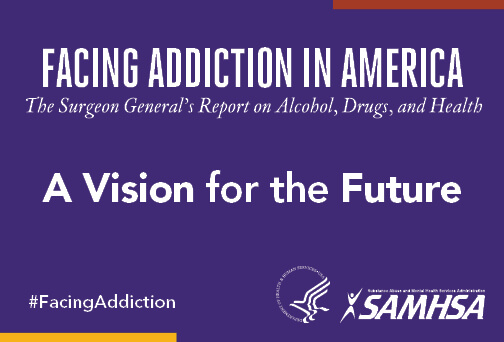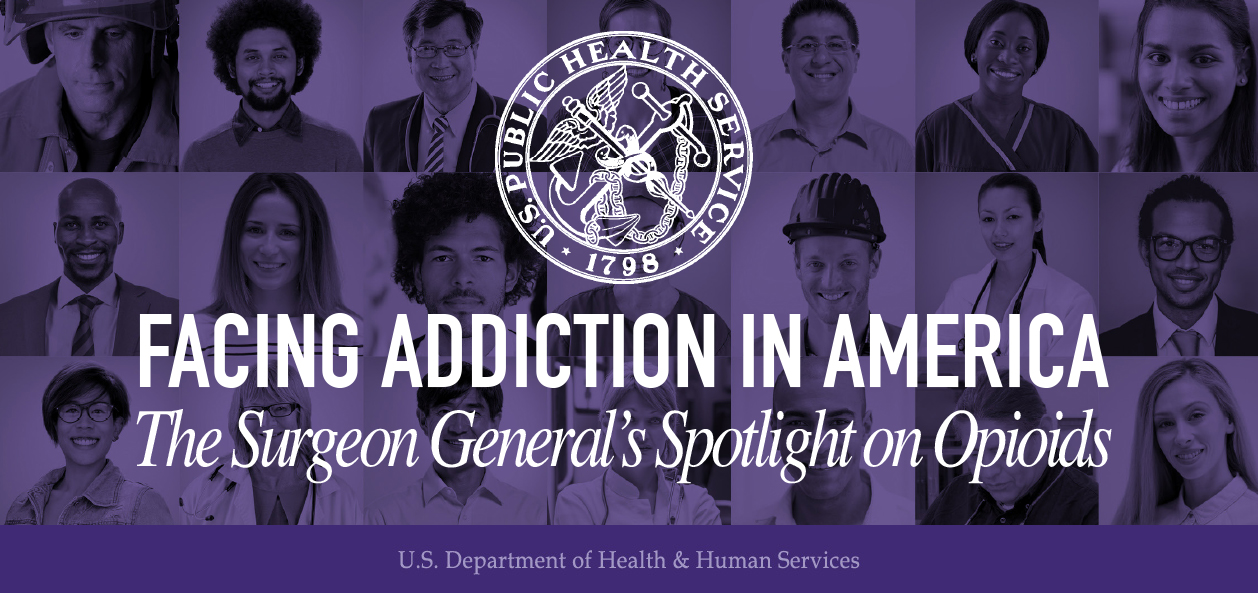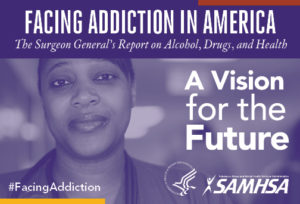
New Opportunities, New Hope.
The scientific community has reached a clear conclusion: addiction to alcohol or drugs is a chronic brain disease that requires medical intervention, not moral judgment or punishment. And like other chronic conditions, such as diabetes or heart disease, there are scientifically proven prevention, treatment, and recovery programs and strategies that can benefit individuals and families and enable them to live happy and healthy lives.
Substance misuse and substance use disorders are two of the most important public health issues we face today. Yet sadly, many have viewed substance use disorders as a moral failing. It is time to shift the way our society thinks about substance use disorders. The U.S. Surgeon General has released a historic report, The Surgeon General’s Report on Alcohol, Drugs, and Health, that will move us in this direction and help us change the conversation about substance use disorders. Substance misuse affects all of us, and there is a role each of us can play in addressing substance misuse and its devastating health consequences.

The most recent data on substance use and addiction reveal that the problem is deepening and the consequences are becoming more deadly than ever, particularly overdose deaths related to prescription pain relievers and heroin. There is an urgent need to raise awareness and show support toward people and families struggling with these problems. The earlier prevention, screening, and treatment begin, the better the outcomes are likely to be.
Substance misuse and substance use disorders are solvable problems. We have reason for hope and optimism due to a deeper, science-based understanding of these issues and new opportunities presented by ongoing health reform efforts. Scientifically tested prevention programs and policies are available to reduce people’s risk for alcohol and drug misuse.
 The Surgeon General’s Report on Alcohol, Drugs, and Health provides suggestions and recommendations for individuals, families, and other stakeholders who play a critical role in supporting prevention, treatment, and recovery. You can help by reaching out if you think you or someone you know has a problem. It’s important for people to know they are not alone. If a loved one has a problem, be supportive, not judgmental. Recognize that substance use disorders are medical conditions that require medical treatment, not moral failings. If you’re a parent, talk to your children about alcohol and drugs. The majority of people with substance use disorders start using substances during adolescence. Become informed about substances your child may encounter and the risks they face. Talking openly and honestly with your children is crucial.
The Surgeon General’s Report on Alcohol, Drugs, and Health provides suggestions and recommendations for individuals, families, and other stakeholders who play a critical role in supporting prevention, treatment, and recovery. You can help by reaching out if you think you or someone you know has a problem. It’s important for people to know they are not alone. If a loved one has a problem, be supportive, not judgmental. Recognize that substance use disorders are medical conditions that require medical treatment, not moral failings. If you’re a parent, talk to your children about alcohol and drugs. The majority of people with substance use disorders start using substances during adolescence. Become informed about substances your child may encounter and the risks they face. Talking openly and honestly with your children is crucial.
You can also help by showing support toward people in recovery. We know that recovery is possible and extending kindness and empathy is an important part of encouraging people to seek treatment and supporting their recovery. We also encourage you to educate your community. Addressing substance misuse requires a public health approach that involves not only the health care system but also schools, civic groups, neighborhood associations, and other community organizations.
We can, and must, inspire change to address this crisis. I encourage you to visit the website to review the Report and related materials today. Together we can improve the health of those we love and reduce the impact of substance misuse and addiction.
